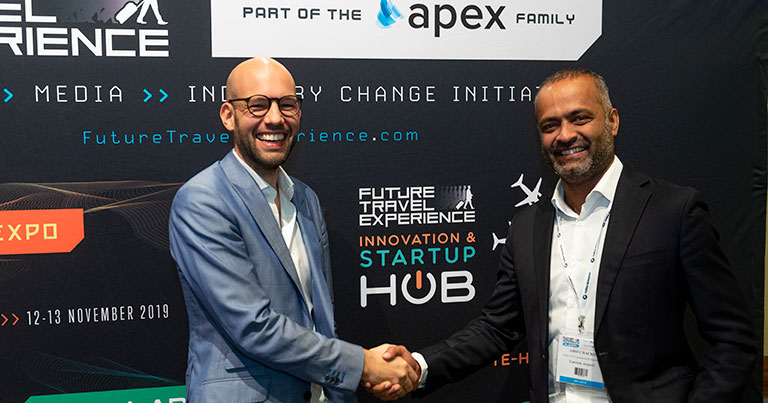
Gatwick Airport and Assaia, a Zurich-based startup, have announced that they have partnered to roll out Assaia’s Apron AI, making Gatwick the first airport worldwide to deploy computer vision technology at the apron for operational use. The two companies first met face-to-face at the FTE Startup Hub Live event in Las Vegas last year and officially announced their partnership 12 months later at FTE Global 2019.
Underperformance of ground handling leads to delays that cost the aviation industry billions of dollars a year but – using Assaia’s Apron AI – Gatwick will now be able to reduce delays and improve on-time performance with the help of computer vision.
Assaia’s Apron AI uses computer vision software and cameras pointing down to the stands to detect all of the events that make up an aircraft turn process – aircraft on stand, jet bridge connected, doors open, fuelling started, catering truck connected, push back tug connected, etc.
Typically, more than 10 stakeholders have to synchronise their activities to turn an aircraft around on stand. In order to minimise the turnaround time, the overall process needs to be optimised across multiple organisations. This needs to be done at a granular level for each aircraft type, each airline and each type of stand. A key part of any optimisation initiative is accurate and unbiased measurements of key activities. This is exactly what is enabled by computer vision technology. Applying machine learning would then enable process optimisation and timely intervention.
Eliminating man-made delays
Max Diez, Assaia’s CEO & co-founder, said: “Our entire team is extremely happy to observe that our system generates accurate event data over a broad range of different light and weather conditions. Thanks to the extensive tests we could conduct at Gatwick, we were able to prove that AI-powered perception is in fact ready for production use.
“Assaia’s mission is to eliminate all man-made delays from the global air traffic system. Computer vision is only the first step towards this goal. Ultimately, we will build an AI system that automatically makes the best tactical and strategic decisions for every turnaround in any situation. This AI will also control the physical implementation of any decision it makes. This is why, among our more than 30 pilot projects, I personally find the one where we focus on monitoring and navigating autonomous GSE the most exciting.”
Gatwick Airport’s Head of Enabling Technologies & Digital Innovation, Abhi Chacko, added: “AI, in this case computer vision coupled with machine learning, was conceived as a tool to understand natural world and ultimately optimise highly complex systems. Airside operations are a great example of such a complex system. And considering the likely growth in air traffic coming our way, the earlier we start using AI to improve our operations, the more successful we will be as an airport.”
Assaia’s real-time dashboard was made available to trial for the airlines and ground handlers operating at Gatwick in November 2018. “Our airline customers and handlers were very enthusiastic. They immediately realised that, at long last, the turn process has become more transparent, their systems can really see the turnaround process in a minute level of detail, facilitating purposeful interventions and effective optimisation,” Chacko added.
Visit the FTE Innovation & Startup Hub website to find out more about the programme and how you can get involved >>>





